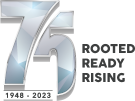We are #Openforlearning
We offer globally-accredited degrees and courses taught by the region’s finest academics in world-class facilities.
Our aim is to provide you with a learning environment in which you can strengthen your skills as a self-directed learner and enhance your capacity to interact and collaborate with your peers, share experiences, challenge accepted ideas and build new knowledge.
Introduction
Population ageing is a global phenomenon, which is having and will have major implications on all aspects of human life in every society. To address this issue in the Caribbean region, the Caribbean Community (CARICOM) in 1999 adopted the Caribbean Regional Charter on Ageing and Health that calls on all governments in the sub region to acknowledge ageing as an issue of priority in the areas of health and social planning (ECLAC, 2004).
Rawlins (2010) emphasized that the probability of ill health cannot be overlooked as people grow older even if they reported good health. As a result, ageing is considered as one of the major challenges all populations have to cope with in the future. With the rising number of ageing individuals, comes the demand for people who are trained to handle such members of the population.
Who is this programme for?
The target groups are individuals who have the interest and passion for caring for the elderly and want to have a career in this field. This programme is also open to health and social care professionals aspiring to develop their skills to meet the increasing demands of caregivers in the field of aged care.
Programme Structure
The programme consists of four courses. These may be taken together for the completion of the Certificate or participants may be permitted to complete any course for the award of the Continuing Education Units (CEUs).
- Introduction to the Ageing Process
- Health Issues Affecting the Elderly
- Integrated Care Management of the Elderly
- Ethics and Legal Aspects in the Care of the Elderly
When will the programme start?
Contact your nearest Open Campus Country Site on the start date for the programme.
Entry Requirements
The Continuing Education Programme – Care of the Elderly is open to individuals with the following qualifications. The candidate may have one and/or all the requirements to be allowed entry to the programme.
- Prospective students or candidates should at least be high school graduates and either passed CXC or CAPE. Candidates should have at least two two-unit CAPE subjects, one from Mathematics, Physics or Biology, and one subject from any of the other subject areas or as specified by the university.
- Candidates should have at least 5 CSEC/CXC/GCE subjects (No more than two subjects at CXC General III or at GCE O’ Level C). The combination of these subjects must be taken from; English Language, one subject from Mathematics, Physics or Statistics, one subject from Biology, Human & Social Biology, Integrated Science and two subjects from Agricultural Science, Geography, Caribbean History, A Modern Language, Social Studies, Religious Education, Food & Nutrition, Home Economic Management, Principle of Accounts, Principles of Business, English Literature, Business Studies, Information Technology, or Chemistry.
- Candidates who have a degree in health care, social work or medical sciences with or without professional experiences in the field and those individuals who are currently working or caring for the elderly or those who have prior experience in the field are greatly encouraged to participate.
Assessment Structure
The goal of the assessment for this programme is to evaluate performance for the effective application of knowledge and skills. It is a competency based, outcome focused programme that requires competency assessment techniques addressing psychomotor, cognitive and affective domain objectives.
Competency based programmes has been found to be equally effective in both didactic and self-learning approaches. This programme requires an assessment of both theory and practice to ensure that graduates are competent to handle and care for the elderly. Competency Outcomes and Performance Assessment Model (COPA) suits as the methodology of choice for the assessment structure of this programme. Students will be assessed in two ways, Competency Performance Assessment (CPA) and Competency Performance Examination (CPE). Competency Performance Assessment (CPA) includes course grades, papers, projects and assignments. Competency Performance Examination (CPE) assesses skills, actual or simulated, to demonstrate the required critical elements for competent practice to meet the specific needs of certain situations.
Course of Study
This course will introduce participants to the fundamental issues of the moral and ethico-legal issues of ageing. It will commence with a basic overview of ethics and ageing. It will then move from the general to the specific, addressing ethics and ageing from a clinical, socio-cultural, policy and individual levels.
The art of caring requires specific and appropriate skills for effective delivery. Elderly people often have chronic health issues and problems that are long-term and continuing. Finding efficient and effective ways to care for the elderly is always an important issue. This course will provide the student, not only the knowledge, but the needed specific basic skills and care strategies to provide integrated care to health problems affecting the elderly.
This course will provide the student a comprehensive approach to understanding the basic health issues affecting the elderly. Students will be exposed to common health issues and challenges seen in the body system of the elderly.
This course will provide the student a clear and strong foundation in the understanding of the normal human aging process evidenced by theories and changes in the body processes that define and describes aging.








